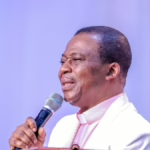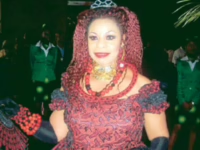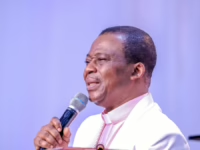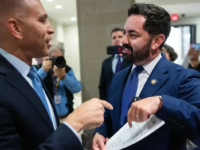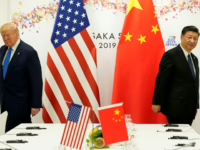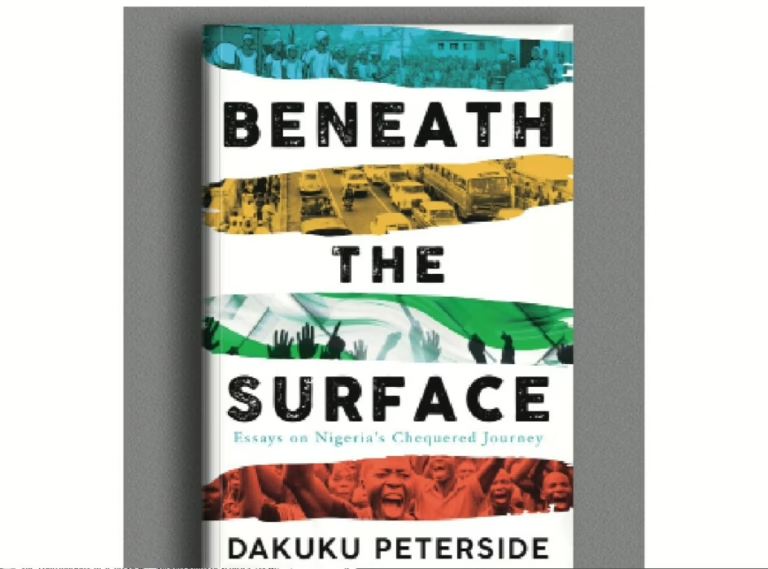Professor Joseph A. Ushie, FANA, a distinguished academic and former Dean of Arts at the University of Uyo, has offered high praise and an insightful critique of Dr. Dakuku Peterside’s book, Beneath the Surface – Essays on Nigeria’s Chequered Journey. In his detailed review, Professor Ushie highlights the depth and breadth of this compelling collection.
Beneath the Surface – Essays on Nigeria’s Chequered Journey is a thoughtfully curated anthology of 70 essays authored by Dr. Dakuku Peterside, a renowned expert in public policy and management turnaround, as well as a prolific commentator on Nigeria’s socio-political landscape. Published in Lagos in 2025 by Makere Publishers, this 496-page volume is organized into six thematic sections. Given the extensive scope and complexity of each essay, delving into every piece in a brief overview would be akin to trying to empty the Atlantic Ocean with a teaspoon. Nevertheless, an examination of the six section titles alone offers a vivid glimpse into the wide-ranging issues the book addresses.
Before exploring the book’s content, it is worth noting the symbolism embedded in its cover art, which visually narrates Nigeria’s journey in alignment with the book’s overarching theme. The cover features four vertically stacked images, each representing a distinct phase in Nigeria’s history. At the top, against the backdrop of the Green-White-Green flag, swaying palm trees evoke the optimism of Nigeria’s 1960 independence. Below this, a serene, orderly urban scene captures the essence of a modern Nigerian city bustling with life. The third image portrays a diverse group of hopeful young Nigerians, symbolizing the nation’s future potential. Finally, the bottom image depicts a crowd of frustrated protesters, fists raised in defiance, embodying the widespread disillusionment and unrest that have come to define contemporary Nigeria. This visual progression encapsulates the book’s central narrative: beneath the initial euphoria of independence and the early promise of urban growth lies a complex reality marked by frustration, despair, and persistent calls for change.
The first section, titled “The People and the State of the Nation,” contains 19 essays and focuses heavily on themes such as hunger and education. Dr. Peterside’s concern with food insecurity is so pronounced that he dedicates chapters like “Hunger Republic of Nigeria” and “Hunger Is Real and Present” to the issue. Other critical topics in this section include inadequate electricity supply, the mass migration of youth abroad-popularly known as the “Japa” phenomenon-moral decay, and the imperative of empowering women in leadership roles.
Part Two, “Governance and Leadership Issues,” comprises 13 essays that critically examine Nigeria’s political landscape. This section scrutinizes what the author terms a “Dark Chapter for the Judiciary,” questions the efficacy of democracy in Nigeria, highlights the commendable leadership of Borno State’s Governor Babagana Zulum, and revisits the ongoing debates surrounding gender equality legislation, among other pressing governance challenges.
“Elections, Politics and Power” form the core of Part Three, which includes nine essays that expose the hidden dynamics of Nigeria’s electoral system. Titles such as “Crowd for Hire,” “Manifestoes that Will Not Manifest,” “Judicial Intervention as Extension of 2023 Elections,” “Unwritten Rules of the 2023 Elections,” and “Security and the 2023 Campaigns” reveal the complexities and often opaque nature of political contests in the country.
Part Four, “Crime, Violence and National Security,” also contains nine essays and, together with Part Three, represents the most intense and urgent section of the book. Here, Dr. Peterside tackles alarming issues such as terrorism, the #EndSARS movement and its impact on Nigeria’s socio-political fabric, the epidemic of ritual killings, the rise of mob justice, the persistent crises in Plateau State, and the scourge of kidnappings. These essays paint a stark picture of the security challenges undermining national stability.
In Part Five, “Economy and Development Interventions,” the author turns his attention to Nigeria’s economic realities and prospects. This section’s nine essays address topics like “Rescuing the Nigerian Middle Class,” “Accountability Deficit and the Transparency Question,” “A Generation Ambushed by Drugs,” “The Deity Called Petrol,” “Surviving the Hard Times,” and “Two Global Wars and Our Economic Plight.” These discussions resonate deeply with anyone familiar with Nigeria’s recent economic struggles, offering not only a diagnosis but also pragmatic solutions aimed at fostering sustainable development.
The final section, Part Six, broadens the lens to encompass Nigeria’s place within the global context. Dr. Peterside explores international events and their implications for Nigeria in essays such as “Lessons from Chad,” “Niger: Trouble in the Neighbourhood,” “Secessionist Agitations in Nigeria and the Israeli-Palestinian Conundrum,” “China’s Leadership Playbook and Nigeria’s Reality,” “From Nairobi to Nigeria: Kenya’s Election as a Mirror Election,” and “Zelensky, Ukraine, and Lessons for Nigerian Leaders.” This global perspective underscores the interconnectedness of Nigeria’s challenges with wider geopolitical dynamics.
Collectively, this anthology offers a rich historical and contemporary analysis of Nigeria’s multifaceted struggles over the past three decades. Dr. Peterside’s eloquent prose guides readers through the roots of the nation’s difficulties, the current socio-political and economic crises, and, importantly, the pathways toward renewal and progress. The essays serve as a repository of insightful remedies, wrapped in engaging narrative, reflecting the author’s profound understanding and passionate commitment to Nigeria’s future.
Echoing an African proverb, “One house owns the cock, but the village owns its voice,” Dr. Peterside emerges as a singular voice for Nigeria whose message resonates globally. This is reflected in the accolades the book has received internationally. Kenyan intellectual Professor P. L. O. Lumumba praises the work as “a potpourri of well-researched essays that challenge readers by masterfully addressing the socio-economic and political obstacles hindering Nigeria’s rise.” Mohamed Ibn Chambas, African Union High Representative for Silencing the Guns in Africa and former ECOWAS Commission President, describes it as “a comprehensive, thoughtful, and scholarly exploration of Nigerian, African, and global issues.” Bishop Matthew Kukah commends the book for its “exquisite writing and insightful themes,” noting that it opens new avenues for envisioning Nigeria’s future. Other notable endorsements come from Dr. Kayode Fayemi, Professor Emeritus Anya O. Anya, and Professor Kyari Mohammed.
In essence, Beneath the Surface – Essays on Nigeria’s Chequered Journey stands as a monumental contribution from Dr. Dakuku Peterside-a rare intellect shaped by unique experiences and deep engagement with Nigeria’s complexities. As the saying goes, “Seeing is believing,” and in this case, reading this book is truly believing in the possibility of Nigeria’s transformation.
Joseph A. Ushie, Professor of Linguistics and former Dean of Arts, University of Uyo



